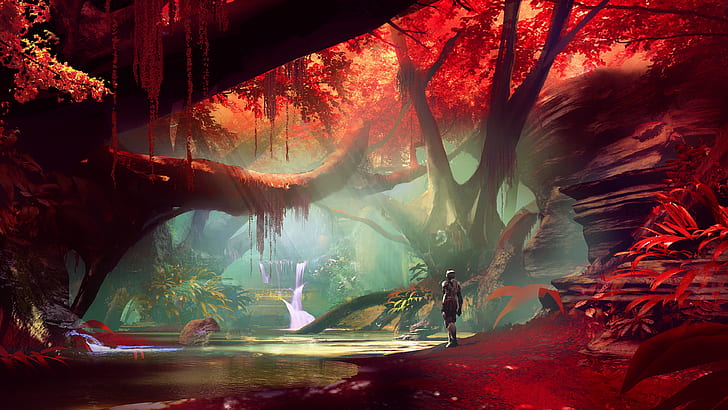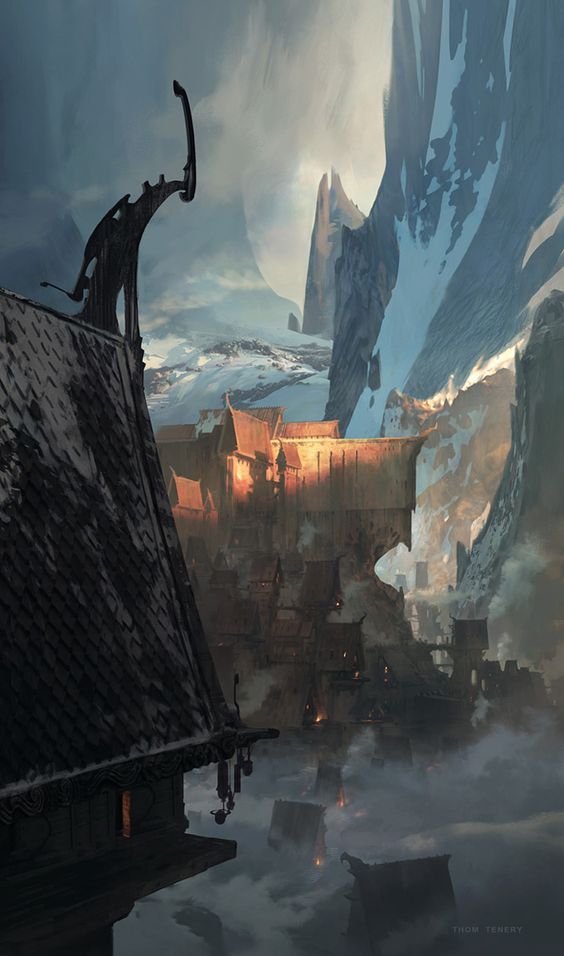Sulgrave
At the edge of the great crater that holds the shattered ruins of Sol Cindareth lies Sulgrave, a battered but unbroken frontier town standing between the living world and the dead. Walled with stone, iron, and salvaged Elven metal platings, Sulgrave is the last warning bell before the Broken Cradle and the first place the dead come crawling.
It is a place of smoke, soot, and gunpowder. A place where the air stings with sulfur, the thunder of muskets echoes nightly. The people have long forgotten the sound of peace.
History
Sulgrave was not born. It was dug, bolted, and forced into being. In the aftermath of Sol Cindareth’s fall, when treasure-seekers and doom-chasers first stepped into the crater, they needed somewhere to fall back to. Sulgrave began as a camp of tents and iron barricades, a staging ground for expeditions. But over the decades, the need for permanence grew.
Now, Sulgrave is a walled town of steep defenses and narrow alleys, its buildings a patchwork of scavenged marble, scorched timber, and melted gold. Watchtowers crown its edges, armed with rusted cannons and sharp-eyed gunners. The sulfuric fumes drifting from vents in the crater coat the walls in yellow dust and stain the skin of the miners who breathe them.
The town’s main industry is salvage. Sulgrave's brave and desperate residents descend into the ruins to extract rare ores, enchanted metalwork, and forgotten silver etched into architecture. Much of Sol Cindareth’s wealth remains intact, entombed beneath its tragedy.
Others work the sulfur mines that honeycomb the outer crater walls. The sulfur fetches a good price from alchemists, physicians, and warmongers alike. It also chokes the lungs, scorches the skin, and sets the very earth beneath the town alight if improperly handled.
The Town
Life in Sulgrave is hard, short, and loud. The people are flint-souled and iron-tongued, their hands calloused from work and powder burns. Outsiders are met with wary glances and blunt questions: “What’re you here for; gold or glory?”
The town’s population is a ragged mix of races. Humans, elves, dwarves, and outcasts alike. Former nobles fallen from grace. Mages too curious for their own good. Blacksmiths with scars from things they won’t name. Refugees from distant wars, looking for something worse to fight.
There is a tavern called The Bleeding Hearth, where the ale tastes like ash and the walls are lined with cursed trinkets too dangerous to sell but too valuable to destroy. There is a chapel to no god in particular, only a place to rest your weapon and confess your fears to the flame.
There is little laughter in Sulgrave, but there is solidarity. People here trust actions, not words.
Sulgrave is not only a town it is a bastion. One of the few remaining roads into the crater winds through its western gate. Every expedition to Sol Cindareth begins here. Every corpse that returns if it does passes through that same gate.
There are whispers that the Black Spire sometimes watches those who leave. That some return wrong. That not all undead wear rotting skin.
The town elders don’t speak of it, but they keep watch.
Despite its fearsome reputation, Sulgrave remains essential to the surrounding region. Alchemists, enchanters, and even nobles pay handsomely for rare metals, magical remnants, and sulfur by the crate.
But Sulgrave grows nothing. Its soil is cursed. Its water brackish. Food and medicine must be imported, typically from Goldenmere and the safer towns farther south. In return, Sulgrave sends wealth mined from the bones of the dead.
At the town’s southern gate is a sign carved in scorched oak:
“Beyond this point, art forgets mercy.”




Comments